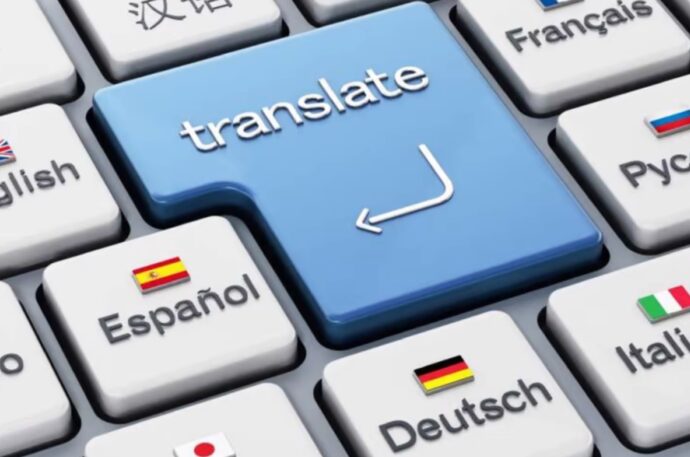Often the machine simply translates words torn out of the text and the overall meaning suffers as a result. Moreover, an Internet translator is not able to grasp all the subtleties and nuances of the translated language. Therefore, artificial intelligence is still clearly losing the battle with a human, which, in addition to good competent translation, also establishes communication. Today, even those who know languages well often use the services of a professional translator. In addition, many are entitled to these professionals by status. These are the rules of protocol. Even if a politician speaks and understands a foreign language well, he must still be accompanied by an interpreter.
Interpreters may interpret in writing or orally. More often than not, an interpreter is required to be proficient in both. Although interpretation and translation are fundamentally different. With interpreting, an interpreter simply wants to convey meaning. There can be slip-ups, but no errors of meaning. Especially when translating speeches of politicians.
By the way, if you have your own translation business, we recommend one of the best translation company management systems – https://protemos.com.
It offers free customer support, training, advice, and a trial period.
Specializations

At the beginning of their career, translators have to decide what kind of translation they want to do. It’s impossible to cover immensity, or you won’t succeed. Experienced professionals say that deciding on specialization is the key to a successful translation career. It’s easier for narrow specialist to develop and improve their skills. But that doesn’t mean you shouldn’t get distracted by other topics and types of translation. It’s always a good idea to develop a broader horizon and immerse yourself more in a particular language.
How do you choose a specialization?

First of all, you need to assess your language skills – whether you prefer interpreting or translation, and understand what areas you are most interested in. It is also worth researching the situation in the translation market, i.e. what topics are in high demand, what customers require from an interpreter.
- Interpreting. There are two types of interpretation, consecutive and simultaneous.
- Written translation. This is the translation of a text from one language to another, as close to the original as possible and retaining the structure of the “source” language. The translator must be fluent in the original language in order to convey not only the meaning of the text but also linguistic nuances. To do this, he has plenty of time to think through the various phrases and allusions. He can also use dictionaries and other materials on the topic.
- Sign language interpreting. In this case, interpreters help hearing-impaired people. Previously, there was no such separate profession. As a rule, sign language is spoken only by teachers who have taught deaf or hard of hearing children, or by interpreters who come from deaf families. Unlike interpreters of other languages, working with sign language is usually simultaneous interpretation, that is, you listen to spoken language and translate it into sign language or translate sign language into spoken language.
- Interpreting in industry and business. This differs from regular interpreting not only in its subject matter, but also in the fact that it requires an expert in a narrow field. In this case, the interpreter becomes an expert in a particular field as well. As a rule, such translations are full of special terms and contain information which can be correctly written only by a person with special knowledge in this field. The industry translator must have a basic or higher education in the specialty that he writes about, translating the original text.
- Dubbing. A type of film translation in which the voices of the film characters are completely removed, and a team of actors re-sounds the picture. With dubbing the viewer is not distracted by subtitles and does not listen to the second soundtrack, as in the case of the voice-over. But dubbing can distort the original voices and intonations, so after the translation of the film, the text should be processed so that the phrases correspond to the length of the original and fall into the articulation of the actors on the screen. That is, the audience should have the impression that the translation fully coincides with the movements of the film characters’ lips.
Personal qualities

First of all, a person must have good professional translation skills. An interpreter, at a minimum, must know perfectly two languages – the native language and the one from or to which the translation is made. In addition, a good specialist must be well-rounded and have excellent diction. He must be quick to react, communicative and have a sense of humor. It is also very important to properly plan your time, to meet the deadlines for the delivery of major projects. Among the personal qualities include perseverance, diligence and self-control. And, of course, good physical shape, because sometimes you have to work under stress, at night or at some party.
Employment

An interpreter is required to work with material in oral or written form and to be able to edit texts. It is also part of the interpreter’s job to provide linguistic support for various meetings and conferences.
Experienced interpreters find it much easier to find work than new interpreters. Even a degree from a prestigious university is no guarantee of successful employment. Therefore, students need to start working as early as their first year. You can volunteer at some international events, work with tourists, for example, to be an interpreter on excursions, look for orders in translation exchanges and groups in social networks. You can also find many jobs for interpreters on the Internet today. Interpreters are needed almost everywhere – in government agencies, publishing houses, commercial companies and travel agencies. These days, knowing a foreign language is a great advantage when applying for a job.
Pros and cons of the profession

The pluses are the high demand for the profession and the absence of the language barrier. In any country, especially with the knowledge of English, you can feel like a fish in water. Moreover, with the knowledge of English, you can work in international projects. Free schedule and a wide range of communication are also very appreciated. In society, people of this profession are respected and it has a great prestige. The disadvantages tend to include long working hours and a lot of emotional stress, especially in simultaneous translation.
Prospects and career
As an interpreter – you will not be out of work, because we live in an age of information, but not always in Russian. Also, a qualified specialist can go to work abroad and earn a high income there. You can also get a job in large companies that work with foreign business.















